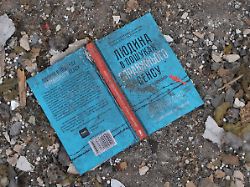In Ukraine, the Wagner uprising briefly put people in a good mood. However, major effects on the fighting are not to be expected – unless the Ukrainian army learns a lesson from Prigozhin’s move towards Moscow.
It was a day of mixed feelings in Kiev. Only on Saturday night was Ukraine fired on with a total of 50 cruise missiles and rockets, most of which attacked the capital as usual. And although the Kiev anti-aircraft defense continued to do a good job, another tragedy of this war happened: the debris of an intercepted missile again hit an apartment building. So far it is known that five people died.
Despite this, the mood in Kiev exceptionally changed for the better yesterday, while the Wagner group of mercenaries led by Yevgeny Prigozhin moved towards Moscow as part of their attempted uprising. The Russian coup was toasted in bars and restaurants in Kiev. The Ukrainian Internet was full of jokes about the sharp increase in popcorn sales and ironic advice to the Moscow population on how to behave safely in wartime circumstances.
“The imperialist monster demonstrates its inner weakness”
But the general tenor was: It doesn’t matter whether Prigozhin or the Russian Ministry of Defense came out on top – the longer the internal Russian conflict escalates, the better for Ukraine. By evening, however, Prigozhin’s uprising was already over – and the question lingers in the air as to whether Ukraine will be able to take advantage of its consequences or is perhaps already taking advantage of it. “I can physically feel the sigh of disappointment in Ukrainian social networks,” wrote the well-known Ukrainian political scientist Volodymyr Fessenko on Facebook about the reactions in Ukraine when it became known that Prigozhin had called off his “March on Moscow”.
Fessenko, who heads the “Penta” center for applied political research in Kiev and is close to President Volodymyr Zelenskyj’s circle, sees it as a positive sign that the Russian president’s system is increasingly shaking publicly. But he warns against over-optimism. “Both Putin and Prigozhin prevented the worst, but they showed their own weakness and the weakness of modern Russia,” he says. “There will be no automatic defeat of Russia. We have a long and hard fight ahead of us. But this imperialist monster is demonstrating inner weakness again. We have to exploit it, step by step.”
Major effects on the fights are unlikely
But what about the concrete consequences for the situation at the front? First of all, whatever the outcome, the Wagner uprising is a blow to the morale of Russian soldiers. He could well unleash additional chaos in the Russian chain of command. And of course the events were a morale boost for the Ukrainian soldiers. Because their summer offensive has led to the liberation of eight towns since it began on June 4, but is – as expected – a bit slow. Soldiers at the front naturally tend to concentrate primarily on their specific tasks instead of looking too closely at Russia. But there must have been a few additional laughs about the uprising attempt in the Ukrainian positions.
However, it is also a fact that the uprising had no direct impact on the fighting. After a break they have recently intensified again, but that is more due to the development of the counter-offensive. There were Ukrainian advances both on the flanks of Bakhmut and in some places in the south. However, the Russians did not give up their positions and continued to attack, for example in the Luhansk district. “The enemy still has forces to carry out offensive actions in several sectors of the front. The defense forces of Ukraine, on the other hand, continue limited offensive actions and are successful,” writes the well-informed Telegram channel DeepState, which is close to the Ukrainian military. Other Ukrainian analysts also say that fighting at the front is going on more or less the same as before the Wagner uprising.
What if Ukraine takes Belgorod?
Therefore, Ukrainian hopes rest less on the aftermath of the uprising and more on the fact that the bulk of the brigades prepared for the counteroffensive have not yet been sighted near the front lines. Prigozhin’s action reveals a rather improbable, but possible and exciting aspect: while almost all powerful Russian troops are fighting in Ukraine, Russia can hardly defend itself on its own territory. It can be assumed that the Russian Ministry of Defense wanted to avoid direct combat operations with the mercenaries. The fact that the Wagner fighters made it to 200 kilometers from Moscow without any particular resistance, and the Russian Air Force lost one plane and seven helicopters in the process, shows impressively that Russia is pretty much bare on its internationally recognized national territory.
In plain language, this means that if Ukraine no longer acts with small groups of saboteurs, but instead sends a few larger military columns to Belgorod, for example, it cannot be ruled out that the Ukrainian army will quickly take control of the city. Then Russia would have to do what it explicitly did not do in response to earlier actions by the militias “Russian Volunteer Corps” and “Legion Freedom of Russia”, which are close to Kiev: send a significant part of the troops to defend its own territory. This scenario remains unlikely because Ukraine’s western partners would view such actions very critically. From a military point of view, however, that would cause a surprise shock on the one hand – and probably open up important gaps on the actual front.
